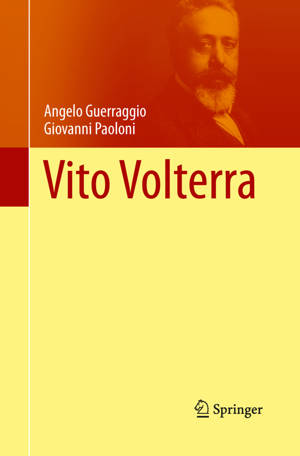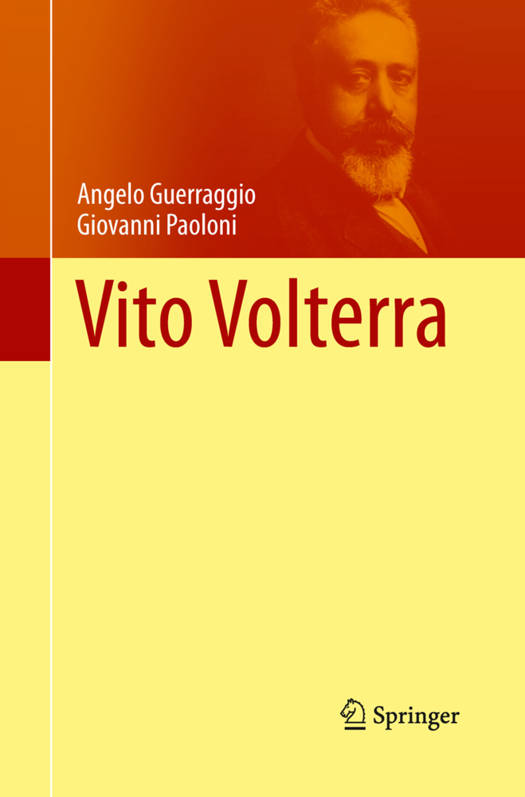
- Retrait gratuit dans votre magasin Club
- 7.000.000 titres dans notre catalogue
- Payer en toute sécurité
- Toujours un magasin près de chez vous
- Retrait gratuit dans votre magasin Club
- 7.000.0000 titres dans notre catalogue
- Payer en toute sécurité
- Toujours un magasin près de chez vous
Description
Vito Volterra (1860-1940) was one of the most famous representatives of Italian science in his day. Angelo Guerragio and Giovanni Paolini analyze Volterra's most important contributions to mathematics and their applications, as well as his outstanding organizational achievements in scientific policy. Volterra was one of the founding fathers of functional analysis and the author of fundamental contributions in the field of integral equations, elasticity theory and population dynamics (Lotka-Volterra model). He delivered keynote lectures on the occasion of the International Congresses of Mathematicians held in Paris (1900), Rome (1908), Strasbourg (1920) and Bologna (1928). He became involved in the scientific development in united Italy and was appointed senator of the kingdom in 1905. One of his numerous non-mathematical activities was founding the National Research Council (Consiglio Nazionale delle Ricerche, CNR). During the First World War he was active in military research. After the war he took a clear stand against fascism, which was the starting point for his exclusion. In 1926 he resigned as president of the world famous Accademia Nazionale dei Lincei and was later on excluded from the academy. In 1931 he was one of the few university lecturers who denied to swear an oath of allegiance to the fascistic regime. In 1938 he suffered from the impact of the racial laws. The authors draw a comprehensive picture of Vito Volterra, both as a great mathematician and an organizer of science.
Spécifications
Parties prenantes
- Auteur(s) :
- Traducteur(s):
- Editeur:
Contenu
- Nombre de pages :
- 176
- Langue:
- Anglais
Caractéristiques
- EAN:
- 9783642432477
- Date de parution :
- 25-06-15
- Format:
- Livre broché
- Format numérique:
- Trade paperback (VS)
- Dimensions :
- 156 mm x 234 mm
- Poids :
- 272 g

Les avis
Nous publions uniquement les avis qui respectent les conditions requises. Consultez nos conditions pour les avis.






